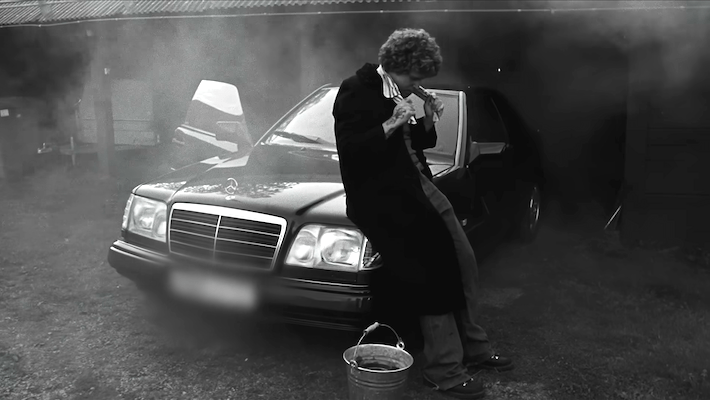In a series amid the coronavirus pandemic, Billboard is asking individuals from all sectors of the music business to share stories of how they work now, with much of the world quarantined at home and unable to take in-person meetings, attend conferences or even go into the office. Submissions for the series can be sent to [email protected]. Read the full series here.
This installment is with Jim D’Addario, chairman of the board and director of innovation at music manufacturing company D’Addario & Company, Inc., which shifted away from making music instruments and accessories to helping make PPE equipment for front line workers.
Jim D’Addario: We’re getting ready to start going back into production [May 27] for the phase one opening of Long Island. We’ve been shut down for almost 10 weeks.
I stepped down as CEO [in January], my nephew took over as CEO, and I retained the titles chairman of the board and director of innovation. We were setting up a think tank-type of environment where I was going to hire more product design engineers and have them work on long-term designs or research projects. I was putting this nice plan together, all of which I haven’t looked at since February. We’ve been innovating around, “How do we make our business survive this incredible crisis?”
Unfortunately, my wife has been ill on a chemotherapy regimen. We couldn’t take any chances, because we’re both 70, and with her in a weakened state, we have to be more careful. There was a period of time where we literally didn’t see anybody, not even our kids, for three weeks. Now, we see our kids and the grandkids, one family at a time, which is nice.
Going to hospitals a lot, we noticed that the doctors and nurses are wearing face shields to prevent themselves from catching this illness and from transmitting it. The governor was pushing New York manufacturers to make PPE products, and we make drum heads out of the same mylar polyester film that the face shield front is made of, so we had the film in stock. We decided to get samples of what’s out there, and rip ’em apart, and see if we could make something similar. And we were able to do it.
We had production going in less than five weeks. I was on virtual meetings for product design, but never really going myself to see it, which is very different for me because I’m a hands-on guy. I like to see and touch things, and also interface with the people doing the job — give them input and congratulate them when things are going right.
Today, we will make our quarter of a millionth shield. The first or second week of June, we will be at 100,000 shields per week. It hasn’t been able to [offset the pandemic’s financial impact] yet, but it has helped us. We’ve got a few hundred thousand dollars in additional revenue from something new, and we’re hoping that we can sustain it. Maybe it will become part of our regular product line. It could offset 50% of the band and orchestra downturn, maybe, if we’re lucky.
We’re hoping tomorrow, we’ll be able to start ramping back up to full production, although we’re not working on anywhere near the same schedule that we worked on before. We had to send people in to build dividers in any areas where you couldn’t separate the machine operators by six feet. We’re making everyone wear a face mask and a face shield. We had to get another cafeteria set up, and we had to put dividers on the cafeteria tables. It looks like the visiting room at a prison. It’s kind of horrible. But we’ve got to do what we’ve got to do.
It’s hard for us to see what the real demand is for our products [right now] because we haven’t been able to ship everything. We’re back-ordering like crazy. But the online retailers have done really, really well in this crisis, because the stores are shut. People are buying a lot of our lower-priced and single sets, indicating that there are a lot of beginners out there that are trying to [learn to play an instrument]. I’ve helped half a dozen people buy a guitar over the past few weeks, because they’re home and they have some time on their hands.
In the end, it will be good for the guitar business. It’s not so good for the band and orchestra side of the business — for people making instruments or accessories like us — because music programs are going to really struggle, coming out of this. Singing in a chorus is really dangerous right now. Playing a wind instrument in a band or an orchestra is very dangerous.
The independent retailers are going to suffer the most from this crisis. I suspect we’ll see a few more of them close shop. It’s sad, because they were the core of our business for decades, and they’re really getting hammered right now. I think we’re going to see more channel shifts to online, and you’re going to see more manufacturers selling direct, too.
But we’re supporting some research for determining the risks of assembling for music right now, and identifying products or accessories that we could design to mitigate those risks, whether it’s devices to sanitize mouthpieces, or some kind of covering at the end of a clarinet. I just finished a face shield product design meeting. We were able to show the samples to each other over the camera and demonstrate what was wrong. When we have our 3-D engineering software up on the screen, the engineers working on the project share the screen, and rotate the model to show different iterations. It’s pretty effective. It’s the only way we can do it right now, so we have to make it work.




